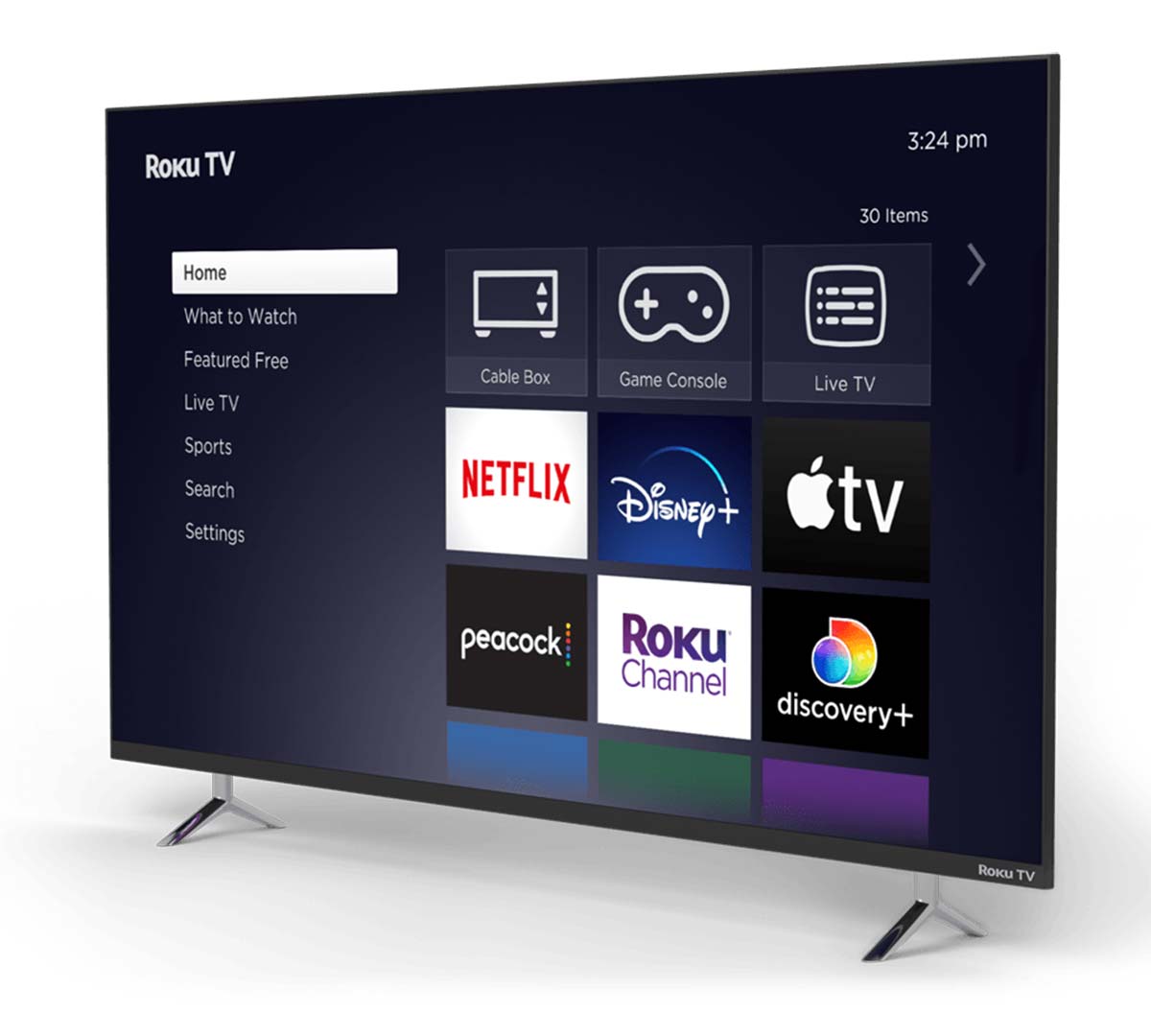Roku TVs have been gaining popularity in recent years, thanks to their affordability and ease of use. These smart TVs are equipped with the Roku operating system, which provides access to a plethora of streaming services and channels. The sleek design and user-friendly interface of Roku TVs have made them a top choice for consumers looking to upgrade their home entertainment system. However, as with any electronic device, the question of longevity arises. How long can you expect your Roku TV to last?
In this article, we’ll dive into the lifespan of Roku TVs and the various factors that can impact their durability.
Table of Contents
Factors Affecting the Lifespan of Roku TVs
The longevity of a Roku TV is a multifaceted issue that can be influenced by a variety of factors. Here are some of the most important factors that can impact the lifespan of your Roku TV:
Usage
The more you use your Roku TV, the faster it will wear out. If you use your TV for several hours every day, it will likely have a shorter lifespan than if you only use it occasionally. This is because the more you use your TV, the more wear and tear it will experience.
Quality
The quality of the components used in your Roku TV can also affect its lifespan. Higher quality components are generally more durable and can last longer than lower quality ones. This is because higher quality components are designed to withstand more wear and tear.
Environment
The environment in which your Roku TV is located can also affect its lifespan. TVs that are exposed to extreme temperatures, humidity, or dust can wear out faster than those in a more controlled environment. This is because extreme temperatures, humidity, and dust can cause damage to the internal components of your TV.
Maintenance
Regular maintenance can help extend the lifespan of your Roku TV. This includes cleaning the screen and vents, checking for loose connections, and updating the software. By performing regular maintenance, you can help ensure that your TV is functioning at its best and reduce the risk of damage.
Brand
The brand of your Roku TV can also affect its lifespan. Some brands are known for producing high-quality, durable TVs that last for many years, while others may have a shorter lifespan. By choosing a high-quality brand, you can help ensure that your TV is built to last.
Overall, the lifespan of a Roku TV is a complex issue that can be influenced by a variety of factors. By taking care of your TV and choosing a high-quality brand, you can help ensure that your Roku TV lasts as long as possible.
Average Lifespan of Roku TVs
The longevity of a Roku TV is a multifaceted issue, with several factors contributing to its lifespan. If you’re a binge-watcher who spends hours on end glued to your TV, your Roku TV may not last as long as someone who uses it less frequently. Maintenance is another crucial factor that can impact the lifespan of your Roku TV. If you don’t take proper care of your TV, such as cleaning the screen and ensuring proper ventilation, it may not last as long as a well-maintained TV.
And let’s not forget about quality. The quality of your Roku TV can make a world of difference in how long it lasts. Higher-end models with better components and build quality may last longer than lower-end models. That’s why investing in a surge protector and handling your TV with care is always a good idea.
So, what’s the bottom line? While the average lifespan of a Roku TV is around 5 to 10 years, proper usage, maintenance, and quality can extend its lifespan beyond that. It’s all about taking care of your TV and making sure it’s in tip-top shape.
Signs of a Failing Roku TV
As with any electronic device, Roku TVs can experience a plethora of issues and eventually fail over time. Here are some signs that your Roku TV may be failing:
Frequent freezing or buffering
If your Roku TV is constantly freezing or buffering, it could be a sign of a failing device. This could be due to a variety of issues, such as outdated software, a weak internet connection, or a hardware malfunction.
Poor picture quality
If you notice that the picture quality on your Roku TV has deteriorated over time, it could be a sign that the device is failing. This could be due to a faulty display panel or other hardware issues.
Sound problems
If you experience sound issues such as crackling, popping, or no sound at all, it could be a sign of a failing Roku TV. This could be due to a faulty speaker or other hardware issues.
Power issues
If your Roku TV is not turning on or is turning off unexpectedly, it could be a sign of a failing device. This could be due to a faulty power supply or other hardware issues.
Apps not working
If your Roku TV is having trouble running apps or is not able to access certain content, it could be a sign of a failing device. This could be due to outdated software or hardware issues.
If you are experiencing any of these issues with your Roku TV, it may be time to consider replacing the device. However, before doing so, it is recommended to troubleshoot the issue and seek professional help if necessary.
Tips to Extend the Lifespan of Your Roku TV
Roku TVs are a marvel of modern technology, but they require a bit of TLC to keep them functioning optimally for years to come. Here are some tips to help you get the most out of your Roku TV:
Keep it clean
Dust and debris can accumulate on your TV over time, which can cause it to overheat and potentially damage its internal components. To prevent this, make sure to clean your Roku TV regularly using a soft, dry cloth. But beware! Avoid using harsh chemicals or abrasive materials, as these can scratch the screen or damage the TV’s finish.
Avoid extreme temperatures
Like most electronic devices, Roku TVs are sensitive to extreme temperatures. To prevent damage, avoid exposing your TV to direct sunlight or placing it near a heat source such as a fireplace or radiator. Similarly, avoid exposing it to extreme cold, as this can cause the screen to crack or the internal components to malfunction. It’s all about finding that sweet spot of temperature control.
Use a surge protector:
Power surges can occur at any time, and they can cause serious damage to your Roku TV if it’s not protected. To prevent this, use a surge protector to protect your TV from power spikes and surges. This will help to extend the lifespan of your TV and prevent costly repairs or replacements. It’s like a superhero shield for your TV!
Turn it off when not in use
Leaving your Roku TV on for extended periods of time can cause it to overheat and potentially damage its internal components. To prevent this, make sure to turn off your TV when you’re not using it. This will not only help to extend its lifespan, but it will also save you money on your energy bill. It’s a win-win situation!
By following these simple tips, you can help to extend the lifespan of your Roku TV and ensure that it continues to function optimally for years to come. With proper care and maintenance, your Roku TV can provide you with countless hours of entertainment and enjoyment. So, go ahead and binge-watch your favorite shows with peace of mind!
When to Replace Your Roku TV
Roku TVs are renowned for their durability and longevity, but there will come a time when you need to replace your device. Here are some signs that it may be time to upgrade your Roku TV:
1. Your TV is outdated: Technology is constantly evolving, and if your Roku TV is several years old, it may not be able to keep up with the latest features and updates. If you find that your TV is no longer compatible with new apps or streaming services, it may be time to consider a new device.
2. Your TV is experiencing technical issues: If your Roku TV is constantly freezing, crashing, or experiencing other technical issues, it may be a sign that the device is reaching the end of its lifespan. While some issues can be fixed with troubleshooting, if the problems persist, it may be time to replace your TV.
3. Your TV is no longer meeting your needs: As your viewing habits change, you may find that your current Roku TV is no longer meeting your needs. For example, if you’ve recently upgraded to a 4K TV or want a larger screen size, it may be time to consider a new device.
Ultimately, the decision to replace your Roku TV will depend on your individual needs and preferences. However, if you notice any of the above signs, it may be worth considering an upgrade to ensure that you can continue to enjoy your favorite shows and movies without interruption.
Conclusion: Making the Most of Your Roku TV
When it comes to investing in a streaming experience, Roku TVs are a top-notch choice. Their interface is user-friendly, their channel selection is vast, and their price point is affordable. But, to ensure that your Roku TV lasts as long as possible, proper care is crucial. This means keeping it clean, avoiding extreme temperatures, and using a surge protector to safeguard against power surges.
Moreover, regularly updating your Roku TV’s software and apps can help keep it running smoothly and prevent any potential issues. By following these tips and taking good care of your Roku TV, you can enjoy years of high-quality streaming entertainment. So, sit back, relax, and enjoy all that your Roku TV has to offer!
Frequently Asked Questions
How long do Roku TVs typically last?
The lifespan of a Roku TV can vary depending on usage and maintenance. However, on average, a Roku TV can last for around 5-7 years.
What factors can affect the lifespan of a Roku TV?
The lifespan of a Roku TV can be affected by several factors, including usage, maintenance, and environmental conditions. For instance, if a Roku TV is used for extended periods or left on for long periods, it may wear out faster. Similarly, if a Roku TV is not maintained properly, it may develop issues that can shorten its lifespan. Environmental factors such as temperature, humidity, and dust can also affect the lifespan of a Roku TV.
Can a Roku TV be repaired if it stops working?
Yes, a Roku TV can be repaired if it stops working. However, the cost of repair may depend on the extent of the damage and the availability of replacement parts. In some cases, it may be more cost-effective to replace the TV rather than repair it.
What can I do to extend the lifespan of my Roku TV?
To extend the lifespan of your Roku TV, you can take several steps, including:
-
- Turning off the TV when not in use
-
- Keeping the TV in a cool, dry place
-
- Cleaning the TV regularly to prevent dust buildup
-
- Avoiding exposing the TV to extreme temperatures or humidity
- Using a surge protector to protect the TV from power surges

